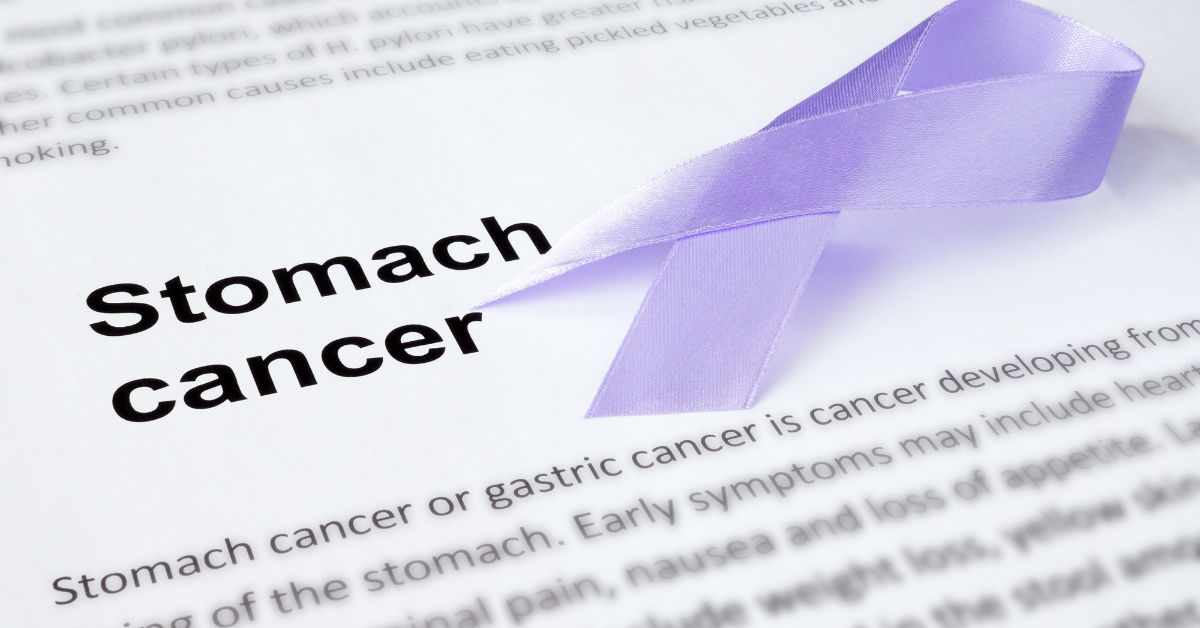When cells in the body grow abnormally, cancer develops. Cancerous cells can arise in almost any part of the body and spread to other parts. For example, when cells in the stomach begin to grow out of control, stomach cancer, also known as gastric cancer, develops.
Understanding the Stomach:
Understanding the normal structure and function of the stomach helps understand stomach cancer. The stomach is a sac-like organ that plays a vital role in digestion.
After being chewed and swallowed, food enters the esophagus, a tube that delivers food from the throat and chest to the stomach. The gastroesophageal (GE) junction is directly behind the diaphragm and connects the esophagus to the stomach (the thin sheet of breathing muscle under the lungs).
By secreting gastric juice, the stomach begins to digest the food. Next, the food and gastric juice are combined and then emptied into the duodenum, which is the first segment of the small intestine.
The Stages of Cancer:
Cancer’s stage indicates how big it is and whether it has spread. It aids your gastric doctor in determining which treatment you require. Stomach cancer can be staged in a variety of ways. The TNM system and the number staging system are both in use. There are five stages in total, from stage 0 to stage 4.
Stage 0:
Stage 0 or high grade (dysplasia) indicates that the stomach’s inner lining has highly malformed cells.
Stage 1:
If you have stage 1 stomach cancer, it hasn’t progressed beyond the thick muscle of the stomach wall.
Stage 2:
Stage 2 stomach cancer indicates that cancer has spread into or through the stomach’s inner, supporting, or muscle layer. It’s also possible that there are chances for cancer in adjacent lymph nodes. You can always reach out to the best hospital in Coimbatore to get advanced treatment for cancer.
Stage 3:
Stage 3 stomach cancer indicates that the disease has spread to or through the stomach’s inner, supporting, muscle, or outer layers. In addition, it’s possible that cancer has spread to nearby lymph nodes.
Stage 4:
Stage 4 stomach cancer has progressed to surrounding organs or body structures and distant portions of the body.
Development of stomach cancer:
Stomach cancers usually grow over a long period. Precancerous changes in the stomach’s inner lining (mucosa) frequently occur before genuine cancer develops. Because these early changes rarely create symptoms, they go undiscovered for a long time. Stomach cancer hospitals can help in the proper treatment of stomach cancer.
Cancers that arise in different parts of the stomach can generate a variety of symptoms and have a variety of outcomes. The location of the tumor can also influence therapy options. Malignancies that begin at or expand into the GE junction, for example, are normally staged and treated similarly to cancers of the esophagus.
The parts where the advanced stages of cancer can spread to,
- Lungs
- Liver
- Lymph nodes
- The lining of the abdomen
Risk factors that involve in developing stomach cancer:
- Obesity
- Taking in salty meals
- Not consuming Fruits and vegetables.
- Smoking habit.
- Having a family history of stomach cancer is a risk factor.
- Gastroesophageal reflux disease (GERD)
- Gastritis
- Genetics
- Polyps in the stomach
- Blood Type A
- Epstein-Barr virus Infection
Early-stage Signs of Cancer:
- Heartburn, particularly after eating
- The feeling of becoming bloated after eating
- Constipation, indigestion, or gas
- Appetite loss.
- Nausea, dizziness, and exhaustion
- unexplained weight loss
- black stool that contains blood (melaena)
- Feeling sick
- stomach ache
- Trouble swallowing
- Exhaustion
Stomach cancer is rarely detected in its early stages, which makes it worse. Even the symptoms are hazy and similar to those of other disorders. As a result, preventive health checkups recommended by top stomach cancer surgeons are critical in the early diagnosis of stomach cancer. The liver is the most common site for stomach cancer to spread.
Signs of cancer when it spreads to the liver:
If your cancer has progressed to your liver, you may have any of the following symptoms:
- On the right side of your stomach, you may experience discomfort or pain (abdomen)
- Feeling sick
- Appetite loss
- Weight loss
- a bloated stomach (called ascites)
- The skin and the whites of the eyes tend to turn yellow (jaundice)
- Itchy skin
Signs when cancer has spread to the lungs:
If your cancer has gone to your lungs, you may have any of the following symptoms:
- a chronic cough that won’t go away
- breathlessness
- chest infections that keep coming back
- fluid buildup between the chest wall and the lungs (a pleural effusion)
Signs when cancer has spread to the lymph nodes:
Lymph nodes are part of a body-wide system of tubes and glands that filter bodily fluids and combat infection.
Cancer can spread to nearby lymph nodes in the abdomen (abdomen) – known as regional lymph nodes.
Distant lymph nodes are lymph nodes that are located further away, such as around your collarbone.
The symptoms you experience are determined by which lymph nodes are cancerous. The most common symptom is a hard or enlarged lymph node. Swollen lymph nodes in the chest can make swallowing difficult. If you have cancer in the lymph nodes in the rear of your abdomen, you may experience significant upper abdominal discomfort that radiates into your back. The best oncologist for stomach cancer helps in the advanced treatment of cancer.
Signs of cancer has spread to the lining of the abdomen:
If your cancer has gone to the tissue lining your belly, you may have a bloated tummy (abdomen) (peritoneum). Ascites, or a buildup of fluid, cause the swelling. It can make your garments feel more constrictive. It’s possible that your stomach is swollen. You may also find it difficult to sit or move about comfortably. Stomach cancer surgery is recommended if cancer has progressed to various stages.
Swelling caused by a buildup of fluid can be aggravating. Various other signs and indications to look out for include:
- a decrease in appetite
- indigestion
- constipation
- feeling ill
- Breathing problems
Signs that may show when the cancer is progressed into advanced stages,
- Stomach pain
- Blood in stool
- Vomiting
- Unexplained weight loss
- Yellowish skin or eyes
- Swelling in the stomach region
Whether you’re currently undergoing Stomach Cancer Treatment in Coimbatore, have completed treatment, or have a friend or family member who has been diagnosed with cancer, you may experience a wide range of emotions. All of these emotions are normal. Learn how to deal with the various emotions that come with cancer.
While dealing with cancer is difficult, you can take steps to help you adjust to your new lifestyle. Find advice on how to stick to your daily routine, return to work, and find comfort and significance.







